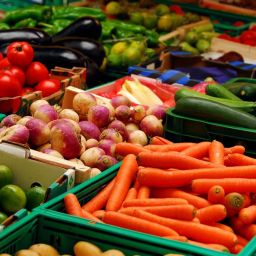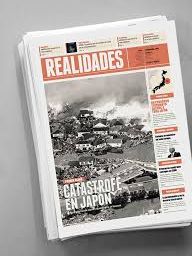Corporate News & Business

Siemens to co-manufacture electrical equipment with Iran (Tehran Times, 04 March 2017)
Germany’s Siemens is in talk with Iran for cooperation in manufacturing power transformers in the country. A final contract will be signed within two months based on which a power transformer manufacturing plant will be constructed jointly by the two sides said Mr. Arsalan Fathipour, a member of the Electrical Industry Syndicate of Iran. According to Mr. Fathipour, the primary agreement was signed in Germany and Siemens agreed to cooperate on the manufacturing of the electrical equipment in Iran under the company’s license.
Iran-France Economic Meeting held in Paris (Tehran Times, 04 March 2017)
On 2 March 2017 the first Iran-France Economic Meeting (Rencontres Economiques Franco-Iraniennes) was held in Paris with the participation of the Iranian Ambassador to France Mr. Ali Ahani. The meeting was also attended by the Mayor of Issy-les-Moulineaux (southwestern suburban area of Paris) Mr. Andre Santini, Mayor of the Boulogne-Billancourt Commune of Paris Mr. Pierre-Christophe Baguet, economic attaches of the Iranian embassy in Paris, economic experts from Paris district and some representatives from the French private sector. The event was a part of Iran- France economic forum and meetings between Iranian and French companies organized by Issy-les-Moulineaux Municipality, economic hub of west Paris and Iran-France Technical Cooperation Agency (ACTIF). The second session will be held in France with the participation of Iranian and French companies.
Armenia desires to contribute to EAEU-EU-Iran rapprochement (Tehran Times, 04 March 2017)
Armenia is ready to promote the mutually beneficial EU-EAEU relations President of Armenia Mr. Serzh Sargsyan announced in a meeting with the experts of Carnegie Foundation’s Brussels Office. He added that Armenia has a long-standing trade experience with Iran, making Armenia a good platform for those European companies that might wish to enter the Iranian market. According to him, Armenia could become the safest and the shortest transit route connecting the seaports of the Persian Gulf and the Black Sea. That was the reason behind the inclusion of the North-South highway, which runs from the seaports of Georgia to Yerevan and further to the border checkpoint with Iran, among the main routes of the European Union said Mr. Sargsyan.
 Astara-Astara project on track (Tehran Times, 04 March 2017)
Astara-Astara project on track (Tehran Times, 04 March 2017)
Track laying for the railroad connecting Iran’s northwestern city of Astara to the Azerbaijan city with the same name on 2 March 2017. The Astara-Astara Railroad, which is part of a bigger project to connect Iran and Azerbaijan’s rail system, runs 8 kilometers in Azerbaijan up to the border from where it extends 2 km to Iran’s port city of Astara.
A joint venture in Iran for Mecaplast-Key Plastics and Riseco (ccfa.fr, 03 March 2017)
On 23 February 2017, Managing Director of the Mecaplast-Key Plastics Group Mr. Pierre Boulet, and President of Riseco Mr. Hamid Reza Samadi, signed a memorandum of understanding to create a joint venture in Iran. The purpose of this agreement is to produce and market automotive parts for manufacturers in Iran. The Tehran-based joint venture will first market the products of both companies before launching joint developments.
Finance
Norway’s GIEK sees Iran trade opportunity (Financial Tribune, 04 March 2017)
Officials from Export Guarantee Fund of Iran and Norwegian Guarantee Institute for Export Credits (GIEK) discussed expansion of ties during a meeting held this week in Tehran. The Norwegian export credit agency aims to familiarize itself with Iran’s business ambiance in order to support Norwegian exports. GIEK’s Chief Executive Mr. Wenche Nistad said that several Norwegian firms active in various businesses have shown interest in doing business with Iran. He added that oil and gas is of high importance to GIEK. Drilling vessels, drilling rigs and offshore services are the main Norwegian exports. He hinted that seafood and fish could also be exported to Iran, but explained that are not normally among goods that GIEK supports. Commenting on Norway’s US$1 billion credit line for covering trade with Iran Mr. Nistad said that the plan is still in its early phases; more time is needed for starting such projects as we need to learn more about each other, know more about doing business with Iran and get familiar with Iran’s banking system. The credit line was granted to lran in August 2016 during the Tehran visit of Norwegian Foreign Minister Mr. Borge Brende.

No MasterCard in Iran for now (Financial Tribune, 04 March 2017
MasterCard does not have any direct links with Iran due to the primary sanctions still in place, said the Central Bank of Iran’s (CBI) Head of Communications and Information Technology Mr. Nasser Hakimi. Although the US-based company provides no services in Iran, negotiations are underway with non-US international companies to offer international credit cards to Iranians, which will come to fruition next Iranian year (21 March 2017-20 March 2018).
Relief for foreign currency loan defaulters (Financial Tribune, 04 March 2017)
President Mr. Hassan Rouhani’s ministers approved that debtors, who have defaulted on their loans, will no longer be denied bank services, provided they pay back at least 25% of their debts. Foreign currency loan defaulters are prohibited from opening letters of credit, receiving any form of loans in rial or foreign currency and opening current accounts. Debtors have until the end of the third month of the next fiscal year (June 21) to repay 25% of their debts and until the end of the next fiscal year (March 20, 2018) to clear the total amount of their dues. These changes have been incorporated as appendants to the Law on Removing Hurdles to Competitive Production.
France’s Finance Minister mobilized to renew banking relations with Iran (Les Echos, 03 March 2017
On 4 March 2017 France’s Finance Minister Mr. Michel Sapin starts a three-day visit to Tehran and Isfahan to unfreeze financial relations between France and Iran. At stake are the tens of billions of Euros initiated by Airbus, Vinci, SNCF, Total, Suez, CMA-CGM, PSA or Alstom, which are put at risk by the refusal of major French banks to finance from near or far Any commercial transaction with Iran. Financial sanctions inflicted by Washington, in particular to French bank BNP Paribas, have scared many banks away from Iran-related business. France Central Bank (Banque de France) recently ordered the French bank La Banque Postale to open a correspondant account for Iran’s Tejarat bank. At the request of the Treasury, only intermediate-sized banks, Wormser and Delubac, have at this stage begun to finance the Iranian market by crediting French exporting companies. Iranian banks, which have resumed their activities in Paris since the lifting of the nuclear sanctions, Tejarat, Melli Bank, and Saderat, have not found a major banking interlocutor to transfer funds on a standardised basis. Member of Tejarat Bank Boards of Directors Mr. Reza Dolatabadi, has said that as a banking partner of Iran Khodro – Peugeot’s partner in Iran – Tejarat bank is ready to issue letters of credit and other guarantees for Peugeot-Iran Khodro joint venture IKAP. Mr. Dolatabadi added that in this regards, Tejarat Bank Paris subsidiary plays an important role in increasing financial services with the French side. Mr. Michel Sapin has three days resolves these financial bottlenecks. It will involve acceptance of loans from the French Treasury, a step previously hampered by the reluctance of its financial operator, Natixis. These loans could support Alstom as part of the Tehran tramway project, and Vinci, a candidate for the development of the Isfahan airport. Master credit insurance agreements with BPI France may also be negotiated.
Oil & Gas
25 oilfield development proposals received post-sanctions (Tehran Times, 04 March 2017)
National Iranian Oil Company (NIOC) Deputy Managing Director for Development and Engineering Affairs Mr. Gholamreza Manouchehri said that Iran has received 25 Management Development Programs (MDP) for the development of its oilfields from foreign companies since the sanctions were lifted in January 2016. The official has also noted that NIOC has started the assessing process of the submitted proposals.
Tehran and Tokyo launch €2bn oil talks (Tehran Times, 04 March 2017)
Managing Director of Abadan Oil Refinery Company Mr. Esfandiar Daemolzekr has reported on talks between Iran and Japan over implementation of a two-billion-euro project for upgrading Abadan Oil Refinery. According to him, in partnership with with China’s Sinopec, the plan to equip, develop and upgrade Abadan refinery is to start as of the new Iranian year (21 March 2017-20 March 2018). He emphasized that the refinery project required three billion dollars of investment adding “desalination units and those for purification of diesel and kerosene will be also expanded. Mr. Daemolzekr underlined that 8000 jobs will be created during five years of developing phase two of the Iranian refinery highlighting that for expansion of Abadan complex phase 4, talks are underway with a Japanese firm and a contract will be inked soon.
He referred to negotiations with Japan’s JGC JGC Corporation Engineering company to carry out the fourth development phase of Abadan Oil Refinery, stating that the project will require nearly 2 billion euros of financing and it will reduce fuel oil output to less than 10%. The refinery is currently supplying 25 per cent of the country’s gasoline demand noted Mr. Daemolzekr, concluding that Abadan Oil Refinery is presently yielding 7 million liters of Euro-4 gasoline and 100LL avgas per day.
Greece is the big winner in the Iran deal (welt.de, 03 March 2017)
China and Greece are benefiting most from the new freedom of Iran’s oil industry, as an oil importer and a transporter, according to the Vessels Value shipping office. The vast majority of maritime transports from Iran are taken over and handled by Greek shipping companies. Iran is currently OPEC’s third-largest oil-producing country. Since January 2016,when Iran has been allowed to export crude oil on a large scale again, quantities have doubled: 563 large tankers transported oil from the country in 2016, a compared to 277 tankers in 2015. The largest customers were China with 105 transports, followed by India, Iran itself, the United Arab Emirates and South Korea. Seaward transports into Iran mean that crude oil is shipped from an Iranian oil field to a refinery in the country. While customers such as China, India and the Emirates have also been buying crude oil from Iran during the sanctions period – albeit in smaller quantities – importers from Europe are now coming back after several years. In 2016 for example, 38 shiploads of Iranian oil went to Turkey, with 21shiploads ending in France and Italy, Spain and Greece were similarly on the destination list. The largest share of oil transport was handled by the National Iranian Tanker Company – the country’s state tanker shipping company – topped the list of oil tansporters. However, it was followed by almost only Greek shipping companies: names like Dynacom Tankers, Delta Tankers, Polembros Shipping, Avin International or Olympic Shipping.
Economy & Society
Exports, re-exports from Iranian FTZs increase (Financial Tribune, 04 March 2017)
Over US$ 281 million worth of goods and services were exported from Iran’s 7 free trade and industrial zones during the 10 months to January 19, indicating a 29% rise year-on-year. Reexports from the Iranian FTZs amounted to US$ 406 million during the same period, registering a 26% increase compared with the corresponding period last year according to data provided by the High Council of Free Zones.
Rise in tax collection (Financial Tribune, 04 March 2017)
The Iranian National Tax Administration collected over $19 billion in tax during the 11 months to 18 February 2017, registering a 26% increase compared with the corresponding period of last year, according to INTA Chairman Mr. Kamel Taqavinejad. The figure meets 90% of the revenues we had projected for the current Iranian year (March 2016-17) said the official. The budget for the upcoming Iranian year (21 March 2017-20 March 2018) projects that the government will earn $29.89 billion from taxation, which is 21% more than the current year’s figure.
By Natela Outtier



